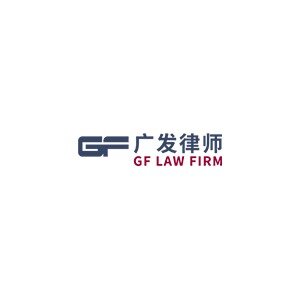Best Banking & Finance Lawyers in China
Share your needs with us, get contacted by law firms.
Free. Takes 2 min.
Or refine your search by selecting a city:
List of the best lawyers in China
About Banking & Finance Law in China
Banking and Finance law in China is a complex yet dynamic field, integral to the country's rapidly evolving economy. This sector covers a wide range of activities including lending, borrowing, financial instruments, securities, regulatory compliance, and more. Since China's financial markets are closely monitored and regulated by the government, understanding the legal framework is crucial for both domestic and international businesses. The main regulatory body overseeing banking and finance activities in China is the People's Bank of China (PBOC), along with other organizations such as the China Banking and Insurance Regulatory Commission (CBIRC) and the China Securities Regulatory Commission (CSRC).
Why You May Need a Lawyer
Legal assistance in banking and finance is often required under various circumstances, such as:
- Negotiating and structuring loan agreements.
- Ensuring compliance with regulatory requirements.
- Handling financial disputes or litigation.
- Advising on cross-border transactions.
- Establishing a financial institution or branch.
- Complying with anti-money laundering laws.
- Participating in mergers and acquisitions.
Lawyers specializing in this field can provide expert guidance to navigate the complexities of the Chinese financial system, protect business interests, and ensure adherence to the law.
Local Laws Overview
The Chinese banking and finance sector is governed by a range of laws and regulations, key aspects of which include:
- Banking Regulations: Regulated by the PBOC and CBIRC, focusing on the soundness and safety of the banking sector.
- Foreign Exchange Control: Managed by the State Administration of Foreign Exchange (SAFE), restricting and monitoring foreign currency transactions.
- Securities Market: Overseen by the CSRC to ensure orderly conduct in securities transactions.
- Anti-Money Laundering Laws: Mandating financial institutions to implement strict AML policies.
- Corporate Governance: Emphasizing transparency and accountability within financial institutions.
Understanding these laws is vital for compliance and successful financial operations within China.
Frequently Asked Questions
What is the role of the People's Bank of China?
The People's Bank of China (PBOC) serves as the central bank, responsible for monetary policy, regulation of financial institutions, and maintaining financial stability.
How does foreign ownership work in Chinese banks?
Foreign entities can invest in Chinese banks, but there are caps and regulatory approvals required. Compliance with local regulations is essential for participation.
What are the primary considerations for foreign loans in China?
Foreign loans must comply with Chinese foreign exchange laws and often require registration with SAFE. Legal advice is crucial to navigate these requirements.
Can foreign businesses open bank accounts in China?
Yes, foreign businesses can open bank accounts, although there are specific procedures and documentation requirements, which vary depending on the bank.
How are financial disputes resolved in China?
Financial disputes can be resolved through arbitration, mediation, or litigation in Chinese courts, depending on the terms of the contracts involved.
What legal considerations are there for cross-border transactions?
Cross-border transactions must comply with foreign exchange regulations, taxation laws, and contractual stipulations specific to international dealings.
How important is regulatory compliance?
Regulatory compliance is crucial as non-compliance can lead to financial penalties, restrictions, or criminal charges against the entities involved.
What are the AML obligations for banks in China?
Banks must implement comprehensive anti-money laundering procedures, including customer due diligence, transaction monitoring, and suspicious activity reporting.
How do capital markets function in China?
Chinese capital markets are regulated by the CSRC and include stock exchanges like the Shanghai and Shenzhen Stock Exchanges, offering equities, bonds, and derivatives.
What are the key challenges in China's banking and finance sector?
Key challenges include regulatory compliance, adapting to technology changes, managing financial risks, and ensuring transparency and accountability.
Additional Resources
- People's Bank of China (PBOC)
- China Banking and Insurance Regulatory Commission (CBIRC)
- China Securities Regulatory Commission (CSRC)
- State Administration of Foreign Exchange (SAFE)
- Legal publications and journals on Chinese banking law
These resources offer valuable insights into the regulatory and operational landscape of banking and finance in China.
Next Steps
If you require legal assistance in banking and finance, consider the following steps:
- Identify your specific legal needs related to banking and finance.
- Seek a law firm or legal professional with expertise in Chinese banking and finance law.
- Prepare documentation related to your legal query, transaction, or dispute.
- Consult the chosen legal expert to understand your options and potential outcomes.
- Ensure regular communication with your legal advisor to manage your financial interests effectively.
Taking these steps can help you navigate the complexities of the Chinese financial legal environment and protect your business interests.
Lawzana helps you find the best lawyers and law firms in China through a curated and pre-screened list of qualified legal professionals. Our platform offers rankings and detailed profiles of attorneys and law firms, allowing you to compare based on practice areas, including Banking & Finance, experience, and client feedback.
Each profile includes a description of the firm's areas of practice, client reviews, team members and partners, year of establishment, spoken languages, office locations, contact information, social media presence, and any published articles or resources. Most firms on our platform speak English and are experienced in both local and international legal matters.
Get a quote from top-rated law firms in China — quickly, securely, and without unnecessary hassle.
Disclaimer:
The information provided on this page is for general informational purposes only and does not constitute legal advice. While we strive to ensure the accuracy and relevance of the content, legal information may change over time, and interpretations of the law can vary. You should always consult with a qualified legal professional for advice specific to your situation.
We disclaim all liability for actions taken or not taken based on the content of this page. If you believe any information is incorrect or outdated, please contact us, and we will review and update it where appropriate.
Browse banking & finance law firms by service in China
China Attorneys in related practice areas.
Browse banking & finance law firms by city in China
Refine your search by selecting a city.















